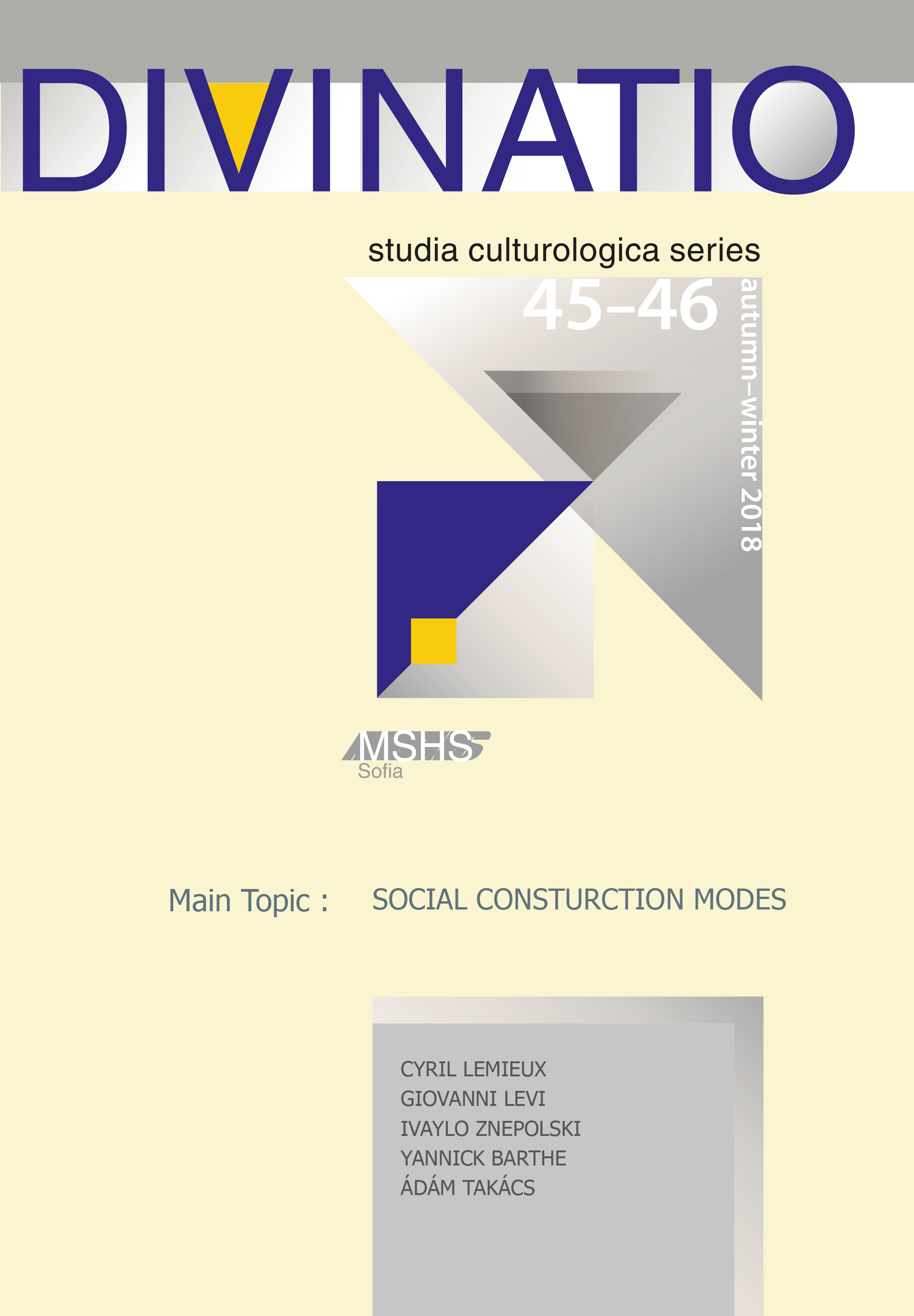
We kindly inform you that, as long as the subject affiliation of our 300.000+ articles is in progress, you might get unsufficient or no results on your third level or second level search. In this case, please broaden your search criteria.

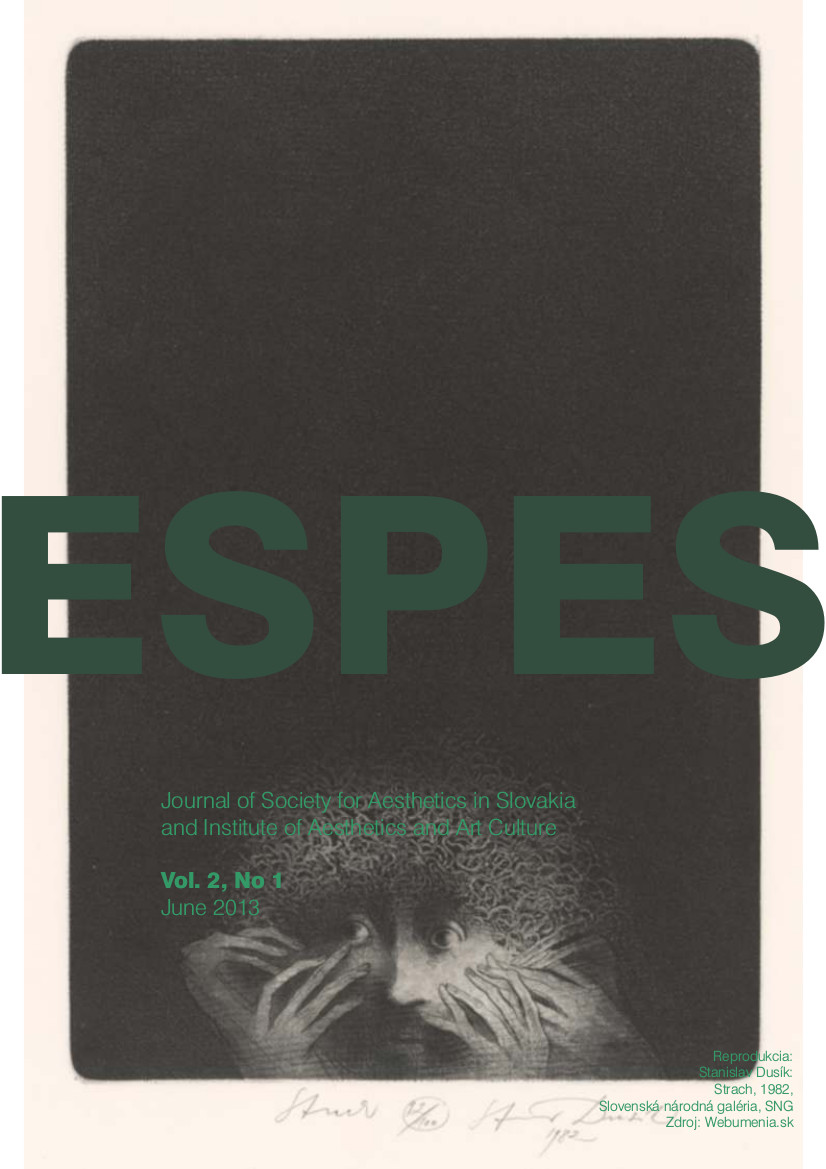
The work sets its goal in an attempt to name the possible relationship in Kant’s, Schopenhauer’s and Wittgenstein’s thoughts about art. The notion less character of the ’idea‘ of an art piece, outlined by Kant’s and Schopenhauer’s aesthetic theory, will be studied in the context of Wittgenstein’s points of view on the question of meaning or interpretation of art pieces. On the theme level, the chosen study can be titled as an analysis of thoughts of the alleged thinkers, these then offer reasons of silence when being ’in front of‘ an art piece. In the second part I turn my attention mainly to some of the connections concerning Wittgenstein’s thoughts and personal experience, which explain in a more broad context his silence, i.e. the mystical dimension of his philosophy.
More...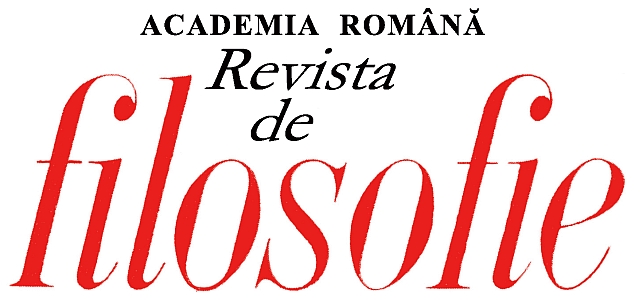
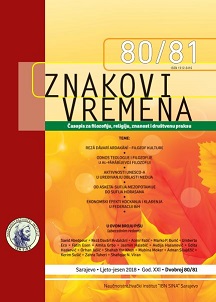
Dr. Rezā Dāvarī Ardakānī, born in 1933, is one of the most important Iranian philosophers of the new era. He is an associate professor at the Tehran University, president of the Academy of Sciences and author of dozens of books and scientific articles. Dāvarī is a philosopher of culture and dialogue. His works on the humanistic concept of comprehension and understanding, Islamic and Western philosophy, are of utmost importance for the philosophical dialogue of modern Iran. His thought evolved on the tradition of Islamic-Iranian philosophy, and can be considered a “disciple” of Western philosophers. Therefore, he is always in search of meanings and concepts that link Western and Islamic-Iranian thought. Of particular importance is Dāvarī’s intellectual pursuit in establishing the atmosphere of civilizational-cultural dialogue in Iran. In this paper, Dāvarī’s scientific biography as well as his philosophical thought will be treated.
More...
Počev od 2009. godine u Ivanjici se svake godine krajem avgusta održava Nušićijada. Reč je o kolaž festivalu satkanom od muzičkih koncerata, pozorišnih predstava, sportskih događaja, performanasa, izložbi i filmskih projekcija, začinjen ceremonijama i paradom kostimiranih građana kao svojim zaštitnim znakom. Ona predstavlja spoj kulture i zabave, tradicionalnog i modernog, mladosti i iskustva, individualnog i kolektivnog. Poznato je da je Branislav Nušić bio odličan besednik i da je napisao jedan od najboljih priručnika za retoriku na srpskom jeziku Retorika – nauku o besedništvu. Imajući to u vidu u okviru Nušićijade u Ivanjici počev od 2012. godine organizuje se Besedničko veče: „NUŠIĆ I REČ“. Ono se sastoji iz dva dela. U prvom delu ugledna ličnost iz javnog života po pozivu govori „Besedu o Nušiću“ na temu o Branislavu Nušiću kao besedniku i teoretičaru retorike. U drugom delu „U slavu reči“, nastupaju revijalno najuspešniji takmičari u besedništvu u Srbiji u tekućoj godini. U ovoj rubrici Hereticusa objavljujemo besede dr Slaviše Orlovića, redovnog profesora Fakulteta političkih nauka Univerziteta u Beogradu i studenata Olivere Ševo, Stefana Dragićevića i Bojane Petrović, koje su održane 27. avgusta 2016. u Ivanjici. Na kraju je beseda dr Đorđa Sibinovića notarima Srbije. [...]
More...
S pitanjem o biti Tehnike danas je lakše nego jučer. Mnogi su već krenuli putem otkrivanja njezine biti i danas više nitko ne sumnja da je pitanje o tehnici jedno od temeljnih pitanja vremena. Ipak na putu k istini tehnike događaju se zdravu razumu i takva iznenađenja kakvo mu je priredio i Martin Heidegger svojom tezom "da u biti tehnike nema ništa tehničkog."
More...
Duh to nije izvršio. Zna se da pojam sistema u svojem emfatičkom hegelovskom slogu, koji, dabogme, ne odgovara deduktivnom pojmu pozitivnih znanosti, zahtijeva da bude shvaćen organski kao međusobno urašćivanje i međusobna urašćenost svih djelomičnih momenata snagom cjeline koja je već sadržana u svakom od njih.
More...
The paper describes and explains the perception of the antagonism between the Serbian and the Croatian nations in the work written by famous Croatian (geo)political scientist Ivo Pilar (1874-1933). Apart from this, the paper analyzes the historical circumstances in which Pilar’s work of a publicist and scientist was being developed, assesses the influence his publications had on the shaping of the ideology of the Ustasha movement and the topicality of his theses in the 21st century and the current (geo)political circumstances in the Balkans. While researching Pilar’s work, a special emphasis is put on the geopolitical dimension of the antagonism between the Serbs and the Croats.
More...
In this paper, we analyse the relationship between the theory of state and law by Friedrich Von Hayek and the constitutionalist tradition of the 18th and 19th century, with emphasis on Hayek’s evolutionary interpretation of the origin of state institutions. We will point out the specificity of evolutionary approach in the context of the distribution of powers concept, especially the functional role of the legal system and special emphasis on the role of judicial authorities in the development of law. In this aspect, Hayek’s theory of state contains one of the fundamental critics of democratic political procedures. The key aspect marking the Hayek’s approach to the theory of law is the strong emphasis on the verge of rationality and therefore the marked importance of customary and traditional norms in the preservation of the legal system rationality, as well as the subordination of legislation to what Hayek calls law.
More...
In this paper we analyze the relationship between Hayek’s theory of the state and law and the constitutionalist tradition of the eighteenth and nineteenth centuries, with a focus on Hayek’s evolutionists interpretation of the origin of social institutions. I will suggest the specificity of the evolutionist approach in the context of the concept of separation of powers, and especially the functional role of the legal system, and specific emphasis on the role of the judges in the development of law. A key aspect that characterizes Hayek’s approach to the theory of law is a strong emphasis on the verge of rationality and, consequently, increased the importance of customary and traditional norms in preserving the rationality of the legal system.
More...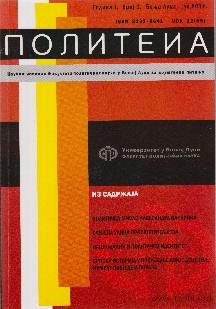
“Действительная стабилизация планеты Земля придет тогда, когда арену займут люди, ... переставшие мерить себя критериями успеха. ... Здесь нас и в самом деле ожидает новый человек, отложивший в сторону заповеди и обольщения модерна. Но сформировать человека этого типа можно только в “русской школе” — в духовной традиции, которая умела дарить человеку достоинство помимо каких бы то ни было намеков на его будущий экономический и социальный успех. Русская духовная традиция по сей день остается единственной светской альтернативой достижительной морали, на одной стороне плодящей хищников, на другой - самоистязательных мазохистов”. [...]
More...
Ernst Bloch je sigurno najosebujniji marksistički mislilac XX stoljeća. Princip nada nije samo glavno Blochovo djelo nego i princip odvažne i plodne misli koja kao istinska mudrost zrači iz njegovih djela, rasvjetljavajući najsloženije probleme suvremenog svijeta od filozofije i umjetnosti do religije i politike.
More...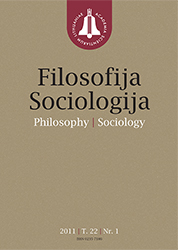
The hierarchical approach to the solution of logical paradoxes is considered in the article. The foundations and main theses of the hierarchical approach are analysed through consideration of Russell’s theory of types and Tarski’s semantic conception. Basic arguments critical of such an approach that have been formulated in logical and epistemological research are presented. A specific characteristic of Wittgenstein’s position in the context of the hierarchical approach expressed by him in Tractatus Logico-Philosophicus is identified. The Wittgensteinian version of the hierarchical approach is the most stable in the relation to the critical arguments considered. If we still want to evaluate the hierarchical approach as an acceptable solution to the problem of logical paradoxes, we should employ its Wittgensteinian interpretation, because it is able to overcome the serious critical arguments against the approach presented in contemporary research on logic, epistemology, and the philosophy of mathematics.
More...
This article examines the problem of overcoming nihilism in Heidegger’s dialogue with Jünger. It is suggested that nihilism is manifested in various forms and is the deep logic of the whole history of European civilization. One of the main aims of this paper is to outline the relationship of nihilism and Nothing in Heidegger’s dispute with Jünger, viewing how Heidegger distinguishes his approach from Jünger’s point of view. Heidegger, on the one hand, treats nihilism as consummation of the Western metaphysical tradition, on the other hand, identifies Nothing itself as the shadow of Being, which cannot be overcome in the traditional dialectical thinking manner.
More...
Znanstveni simpozij: Življenje in delo dr. Dušana Kermavnerja (Ljubljana, 4. in 5. 12. 2003)
More...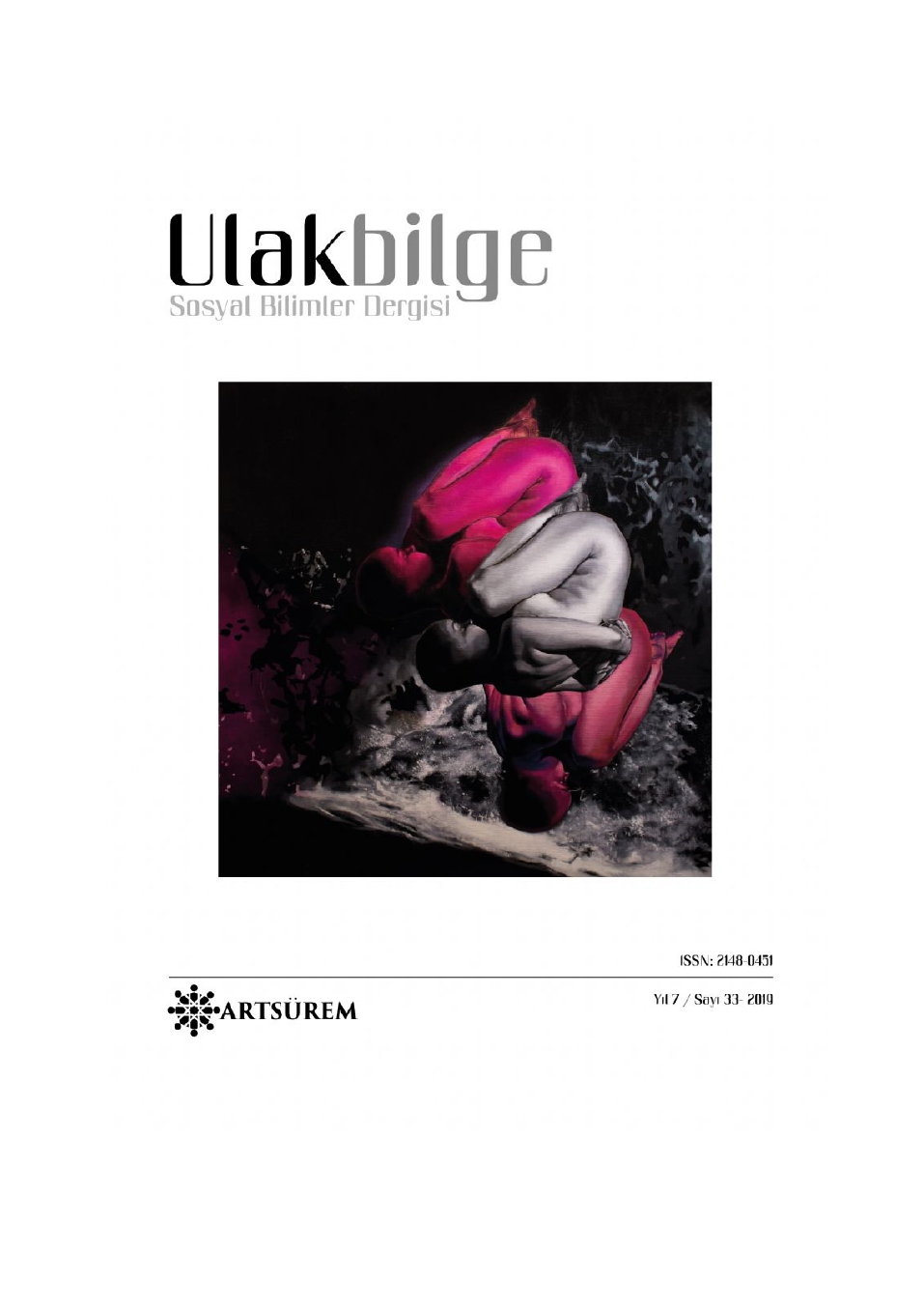
The work of art gives information about the social economic and cultural structure in the period it exists. It lists the social economic and political elements in the society and tries to examine the chronological works of art. Within social structure, the social and economic behaviors that exist in certain periods determine the rules of art and the formation of images, the style and composition characteristics. Besides the emotional nature of art, there is also an intellectual ideological aspect. Art transforms not only the emotions of people but also their thoughts into the images. In this study, evaluations about the relationship between art and politics are summarized. With the transition to the multiparty period in our country, the more effective understandability of the democratic understanding by the society and the political, economic and social realistic conception of art has been examined.
More...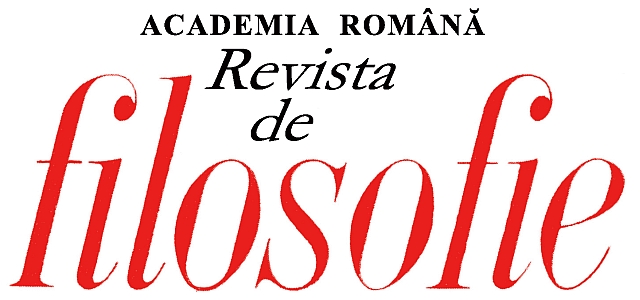
This article outlines the efforts of the Western philosophers to find the hidden unity lying behind the world of the opposites. It starts by discussing the Pre-Socratic concept of an original matter. Here such unity was only posited and not yet fully understood. Next, the article addresses the more specific views of Plato, Aristotle, and Plotinus, who endeavored to explain the persistence of the real forms within the decaying world. Finally, it presents the way in which Christianity elaborated a new concept of the divine Creator that marked both the Western medieval tradition and the European modernity radically.
More...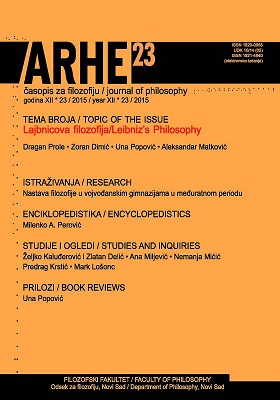
This paper deals with the concept of singularity with special regard to the problem of historical singularity. On the one hand, attention is devoted to contemporary thinkers such as Sartre, Badiou, Deleuze, Basso, Hallward, Hardt/Negri and Agamben, in order to reconstruct the main dilemmas and challenges. The author confronts these thinkers by taking into consideration the key notions of these debates: universality, representation, difference/indifference, individuality, multiplicity, contingency, creativity. On the other hand, this paper focuses on the debates over the singularity of the Holocaust by applying the insights of the previous Begriffsgeschichte of singularity. An excursus is devoted to Fatelessness, written by Imre Kertész.
More...
Nihilism can no longer be regarded solely as an individual roadblock (problem of self); instead of that, it must be considered as a political problem (in terms of polis, understood as a society or community). Vattimo is most interested in examining how far can we go with positive nihilism, after Nietzsche and Heidegger; that is, where the presumed positive aspects of nihilism could lead us, after we have recognized (with Nietzschean figure of “perfect nihilist”) that nihilism is our only chance. We will also see in which way Vattimo responded to the questions of crisis of metaphysics, mind, subject, conceptions of Humanism and the Enlightenment – the ideas which are not so easy to abandon in a manner of an old wardrobe.
More...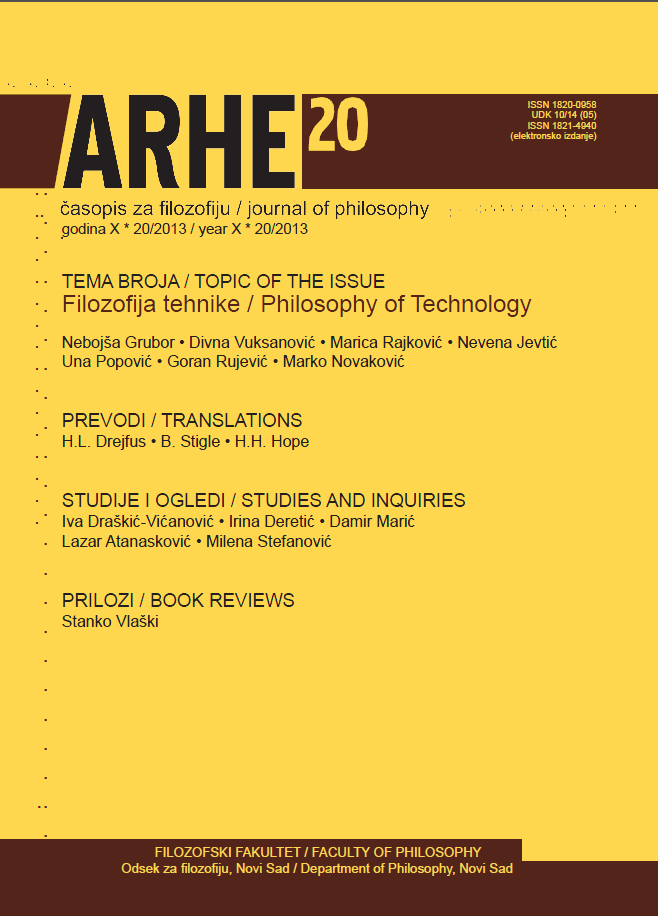
Karl Jaspers understands technic as a sum of man’s abilities to affect and alter the surroundings in order to improve one’s position or realize some other intention. Technic is thus one of the defining factors of human history, to the extent that Jaspers defined several historical epochs according to the specifics of the technic that was emerging or was already in use in those periods. Major scientific and technological progress that took place from the eighteenth century has directly influenced the growth of human population, which, in order to be sustained, required an elaborate apparatus of mass order. This apparatus has greatly influenced the position of modern man, mostly detrimentally, uniformly equalizing him and detaching him from his historical source. Responsibility for establishing and maintaining such an order can neither be criminal nor political, but rather moral. This means that there is little point in debating how such an order came to pass, but that we are all immediately responsible for partaking in and perpetuating of this situation, as well as we are all responsible for its eventual overthrowing.
More...